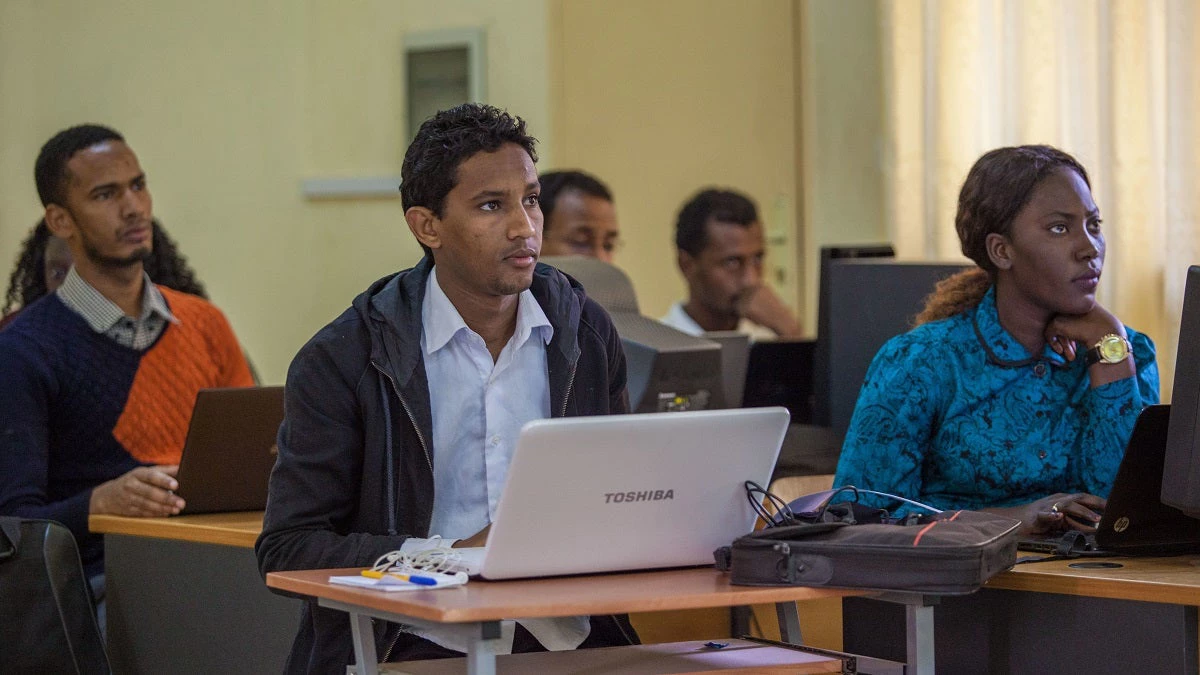
We used to think of the three R’s—reading, writing, and arithmetic—as the foundational skills in today’s education systems. As we turn to a new decade, it’s time to add another: digital.
Nowhere is the need for digital skills more pressing than in Africa. Home to eight of the ten fastest-growing economies, Africa has enormous potential. To ensure positive economic growth and development that benefits all citizens, Africa must make big strides in digital literacy. In Sub Saharan Africa, 230 million jobs will require digital skills by 2030, according to the Digital Skills in Sub-Saharan Africa report that IFC recently published. This translates into an opportunity estimated at $130 billion to provide digital skills through a combination of business-to-consumer, business-to-business, and business-to-government training services.
The status quo is unacceptable. Only 50 percent of countries in Africa have ‘computer’ skills as part of their school curriculum, compared to 85 percent of countries globally. The companies surveyed in our report revealed a high demand for digital skills—and a skills shortage. Nearly 65 percent of the job vacancies that employers were trying to fill required at least basic digital skills. However, 20 percent of companies surveyed in Ghana said that they were forced to recruit internationally as they could not find the talent they needed locally. This must change.
We know that countries in Africa are on different economic development trajectories. Moreover, we cannot generalize continent-wide when speaking of what blend of services, manufacturing, and agribusiness Africa’s future economies will comprise. That mix will vary from country to country, from sub-region to sub-region. But what our research tells us unequivocally is that we must rapidly ramp up digital education at all levels—basic, intermediate, and advanced—if Africa is to realize its potential.
How we do this matters. Some of us may recall school days where a teacher marched us off to ‘computer class’ in some room filled with clunky machines where we were supposed to learn the basics. Things must be done differently today. Digital skills should be embedded in the entire curriculum rather than taught separately. Kids should be applying digital skills in their math and literature classes, although a standalone digital skills class may still be useful.
When students take exams, it may no longer makes sense to cocoon them in a tech-free bubble. When they sit for exams, today’s digitally native kids probably feel as if they are getting into a time travel machine taking them back 100 years because testing generally doesn’t incorporate web-based research materials nor is it administered in a digital format. Teachers and school systems need to think about exams in the future, and the potential role of digital resources in enabling more problem-solving based testing rather than rote memorization.
This is an exciting space where we see innovative, successful models popping up which are important steps toward addressing the digital skills challenge. We profiled some of these companies in our recently published digital skills report. Some are Africa-based, some are global with a presence in Africa, while others are based in other emerging markets but have models that could be replicated in Africa.
For example, India-based nonprofit Anudip is imparting basic and intermediate digital skills to about 20,000 people a year through more than 100 resource centers with a strong focus on educating women and youth. The basic digital skills they teach include how to use digital devices, how to use email, how to create an online identity, and how to find, manage, and store data online. These basic digital skills are increasingly needed for all age groups to just be able to live and operate in our world.
In Africa, corporate-supported Microsoft 4Afrika, founded in 2013, is providing intermediate-level training to about 500 students via its ‘AppFactory’ and is creating 250 internships annually. Microsoft 4Afrika has an on-the-ground presence in Egypt, Ethiopia, Ghana, Kenya, Malawi, Mauritius, Nigeria, Rwanda, South Africa, Uganda. The skills it imparts includes things like how to use professional software for presentations, how to do social media analysis, and web design.
Targeting intermediate to advanced level students, Ghana-based Developers in Vogue (DIV), founded in 2017 by Ivy Barley, imparts a blend of digital and soft skills to young women using online sessions, group activities, and a one-month, on-site bootcamp. Students also compete in hackathons to test their coding skills under pressure. DIV’s evolving business model blends revenues from grants, corporations, and registration fees. After its students complete the three-month course, DIV connects them to freelance opportunities, internships, and full-time jobs in tech companies in Africa.
These are just a few examples of the many fronts where we are advancing in pursuit of the broader goal of creating a digitally literate Africa. We must push this process forward at a quicker pace. Africa can deliver on its economic potential much faster. And it is digital skills that will make the difference.


Join the Conversation